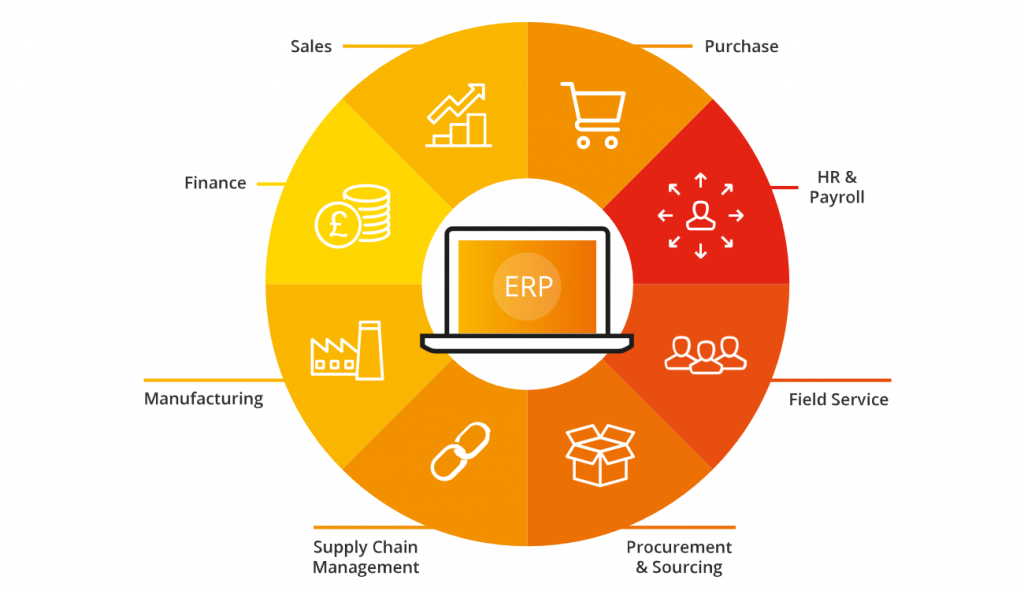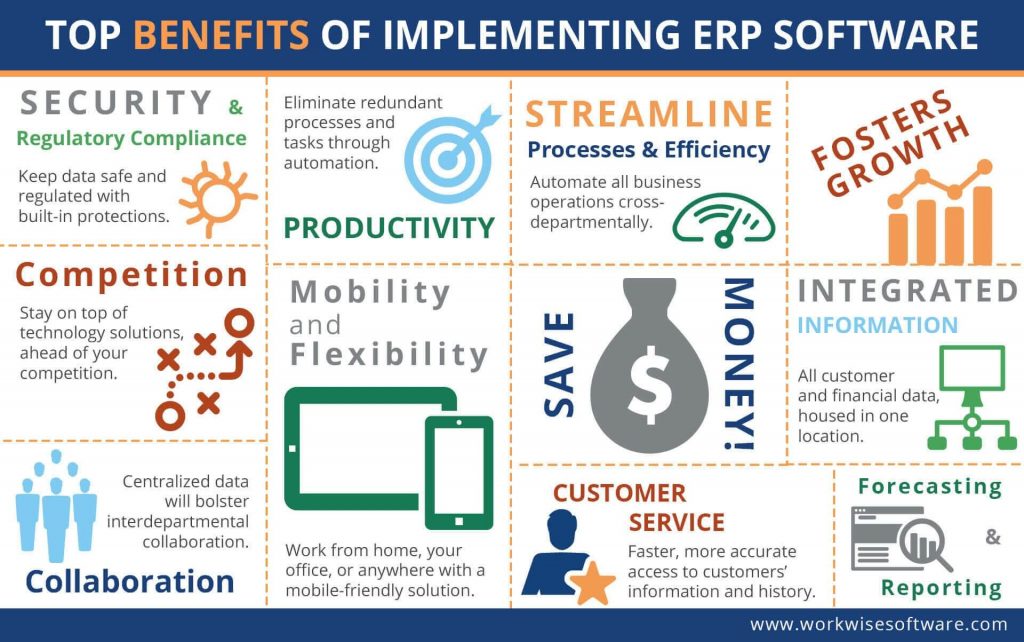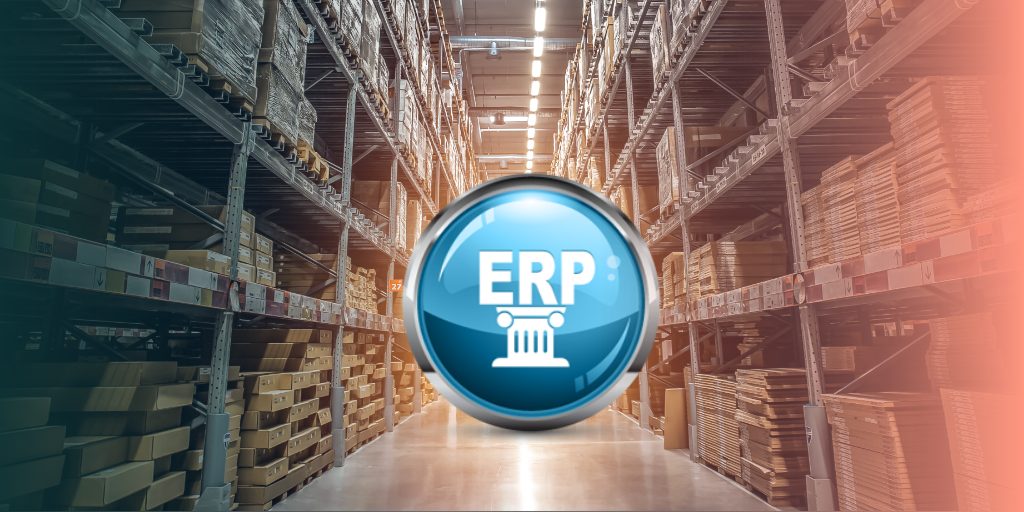The B2B world is a land of opportunity. From digital operations platforms appearing to companies adopting different B2B models, there are so many ways you can go when you go B2B.
But here’s the thing. To actually boost your operations internally and externally, you need technology at your disposal. One of the best pieces of business technologies available today are enterprise resources planning (ERP) software.
This post discusses how ERP systems can prove beneficial to your B2B ecommerce operations. In addition to that, you will also learn the various integration models available in B2B.

So, let’s begin.
Benefits Of Using ERP Ecommerce Integration for Ecommerce
Smart Data Usage
When you integrate an ERP system with your ecommerce store, you’ve technically created a digital operations platform. A move away from traditional operations, you’ll have state of the art access to real time data.
Over time, that data can be used to help you make a variety of different business decisions. Everything – from inventory management, to order status, the number of sales completed for a quarter, and the number of customers dropping on your ecommerce store daily – can be tracked and monitored directly from the main ERP system.
“Everything in a single place”, that’s the core benefit of having an ERP system in your organization.

Rather than separating business operations in a silo, with each business unit confined to its own data, an ERP ecommerce integration takes a different route. It centralizes the flow and control of information from all the business units.
To put things in a simplified manner, a sales unit of a particular company will be able to see the inventory data.
The one’s handling the inventory can use the information from the accounting management system, and so on. With information flowing smoothly within the organization, it leads to more coherent and powerful reports that result in calculated decision making.
Better Inventory Management
In the previous section we discussed plenty. So, let’s narrow things down a bit, shall we?
Crises can arise at any time. For an ecommerce store, one of the most critical moment is when they have to deal with an increasing onload of customers on their store.
It could be due to a holiday sale or a promotion. Businesses, therefore, need to prepare themselves to tackle the sales period.
Now, during that period, one of the biggest problems businesses faces is having a good enough stock of inventory to keep up with the demand.
Oftentimes, due to stockouts, the company might face a less successful sales quarter. With an ERP integration, you can forecast an estimated number of sales for a particular quarter.

When you’ve done that, you’ll be able to manage your inventory more smoothly. This allows you to have enough inventory to survive the busy seasons, while also maintaining a healthy sales margin.
Cost Effective
The previous section talked about having an accurate estimate of inventory, right?
What if that weren’t the case?
Well, in such a situation, you’ll either have a surplus or shortage of inventory.
In the case of surplus, given that the items being sold are not perishable, you might be able to sell them off quickly but even that is a long shot considering your stocked for seasonal sales.

In the case of shortages, you can lose a strong customer base who, otherwise might have converted to loyal customers.
Without proper inventory mapping through an ERP, you’ll be left with stocking gaps, improper transactions, and a general inefficiency that will translate to your whole organization.
It’s a trickle-down effect you must avoid at all costs.
With the right B2B ecommerce ERP integration, you won’t have to worry about any of that.
Improved Customer Experience
One of the most overlooked benefits of having an ERP system is the gain in efficiency when it comes to customer experience.
With the right ecommerce ERP integration, you’ll be able to provide self-service and omnichannel experiences. Rather than talking to sales reps for better customer services, you’ll be able to provide them with a self-service experience with all the queries answered at their fingertips.
This ultimately leads to better personalization, better tracking, and more accountability throughout the organization.
Speaking of which…
Better Accountability
The final and most important benefit of using an ERP is its integration with your account management systems.
Whether it’s a key account or that of a regular customer, your ecommerce systems can help integrate all the purchases coming from various accounts.
At the end of the day, it provides better accounting and leaves less room for human error.
Understanding ERP And Ecommerce Data Flows
There are many ecommerce platforms available today. This is no understatement: when you go on to search for the platforms available today, you’ll be surprised at how identical yet unique each ERP looks.
But here’s the thing: you want something practical, not just for show. Having a bells and whistles ERP ecommerce integration won’t be any good unless it helps your company to grow.
Think about your business processes. What do you want to achieve from the integration? Quicker workflows? Better electronic data interchange? Better customer onboarding? Driving more business?

Better integration with offline and online ordering channels? These factors, and many other like them, are all things you need to take into account before you go selecting the right ecommerce ERP integration for your business.
Only once you’ve mapped your entire business can you expect to change your business processes for the better.
Types Of ERP Ecommerce Integrations
The world of ERP software is vast and there are so many ERP software products available for so many business operations.
As we’ve discussed already in the examples of inventory management, order management, and account management, ERP can be beneficial for all sorts of purposes.

The biggest mistake when it comes to ERP ecommerce integration
In pursuit of copying the competition, many business owners make the mistake of using the exact same ERP system.
What they don’t know is that, while effective, their ERP of choice might not suit their business process.
It might suit the competing business a bit more. This is a mistake that you should avoid at all costs. Instead of emulating other businesses, you should conduct an audit of your own business operations and then search for an ERP that focuses on fulfilling that purpose.
To give you a run-down, here are some types of ecommerce integrations for your ecommerce business processes.
ERP Systems: Individual and Complete Solutions
When we think about ERP integrations, we usually think along the lines of a huge line of software. Far from being a small business system, an ERP seems more suited for a large corporation.
ERP software are not like that. Not at all.
Yes, while there are ERP systems that facilitate the entire breadth of a business operation, it doesn’t mean that you can’t get customized ERP systems or systems for a particular business operation. Take for example, an ecommerce store looking for an ERP integration with their account management operations.
Now this implies that they want an ERP software but for that particular business unit. Because of this demand, there will always be a supply of a customized ERP module for the users.
The Types of Enterprise Resource Modules
Financial Management ERP module
One of the most important ERP sub-systems available today, financial ERP systems help you monitor and analyze the financial position of your organization. Everything from budget expenditure, to payment tracking, budgeting, A/C receivables and payables are all tracked through the financial ERP system.
The software is ideal for companies looking to gain more accountability for their expenses and budget. It allows for efficient and error-free billing, balance sheets, and book management.
Procurement Module
For supply chain procurement process, an exclusive procurement module of an ERP can help in managing ecommerce process.
It creates a more controlled accounting environment, managing approved vendors by the amount of business. At a broader level, the module automates quotes, thus leading to better collaboration between buyers and sellers.
Overall, this results in a more smoother process flow. Sellers can turn the quotes into sales orders, and at the same time, they can update their product orders as well. Bear in mind, all of this is done at a quicker pace than through manual and spreadsheet processes.
Manufacturing Modules
Material Requirements Planning (MRP) software used in previous decades formed the foundation of modern ERP systems. Used for managing production, an MRP software helps gather the materials required for production and enters them into the system. It also accounts for the amount of material used, the remaining materials, and how much materials are needed for future production.
The end result of integrating this module with your ecommerce store is better supply and demand forecasting for a smooth production operation. At the end of the day, it leads to more efficient business operations.
Inventory Modules
We’ve already discussed ERP ecommerce integration for inventory management. In a nutshell, it’s an effective tool in tracking inventory coming in and out of a business, managing quantities, drop locations, SKUs, and more. It provides an automated and error-free accounting of inventory. Moreover, it also gives you detailed forecasts of inventory for the coming quarters, thus enabling you to avoid shortages and surplus during a particular season.
Warehouse Module
For ecommerce business who operate using a warehouse model, having a warehouse management system (WHMS) is a must-have.
The software is there to maximize the use of the warehouse. It creates a map of your warehouse and designates various picking zones (batch, wave, and zone picking).
The end result of integrating this with your ecommerce store is to improve efficiency in your processes. It also ensures that the products are shipped off to the consumer in the least amount of time.
Supply Chain Module
A Supply Chain Management (SCM) software has plenty of uses. It can be used for logistics and managing goods going into and out of a business.
At the same time, it also provides efficient management of suppliers, retailers, consumers, and distributors.
The previous section on procurement ERP software comes under the larger umbrella of supply chain management.
Customer Relationship Management (CRM) Module
Customer Relationship Management (CRM) software is by far the most effective software for a business to have.
They help store valuable customer information – demographics, emails, purchase history, and more – and combine them together for better business decisions. With these tools, you can map out your business decisions, and improve customer engagement in a more organized manner.
Ecommerce Module
One of the most interesting pieces of software out there, ecommerce software provided by ERP companies provide the complete package.
They are an ERP software selling ecommerce an ecommerce product. It’s the other way around.
With it, you can set up a store, add products, and manage operations more effectively. For both B2B and B2C business, it provides an ecommerce store at the ready.
Marketing Automation Module
Marketing automation ERP software help you manage your front-office activities. With it, you can set up your email campaigns, check analytics, and more.
Overall, they speed up the workflows considerably since they are automated at the core.

Conclusion:
There are plenty of benefits to having an ERP ecommerce integration. With the right integration and B2B platform available, you can make your business more optimized and faster.

While that’s pretty much common knowledge, the key takeaway from this is that you should perform your research before you go about selecting an ERP system. Only then can you hope to gain advantage for your business operations.
If you’re a WooCommerce B2B store owner and want to enhance your productivity, then B2BWoo is the best option for you. It’s a one-stop-shop for your every WooCommerce B2B eCommerce solutions.
We hope you liked this post.
